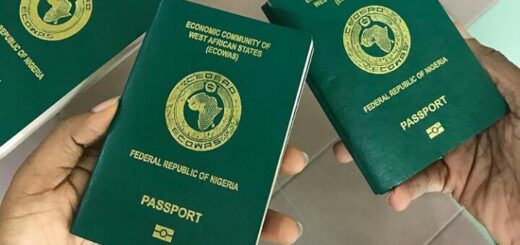Cost of Relocating to the UK from Nigeria (2026)
Relocating to a new country can be an exciting yet challenging endeavor. When considering a move from Nigeria to the United Kingdom (UK), it is essential to understand the various costs involved in the process. This article aims to provide an overview of the expenses associated with relocating to the UK from Nigeria and offer insights into budgeting and financial planning for a smooth transition.

Moving to the UK requires careful financial planning, as there are several factors that contribute to the overall cost of relocation. By understanding these expenses upfront, individuals can make informed decisions and adequately prepare for their move.
If you’re considering relocating to the UK from Nigeria, there are several factors to consider, including the cost of living, visa requirements, and job opportunities. The UK is a popular destination for Nigerians seeking better education, healthcare, and job prospects. However, the cost of relocating can be high, and it’s important to plan your budget accordingly.
One of the most significant expenses when relocating to the UK is the visa application fee. Depending on the type of visa you’re applying for, the cost can vary, and it’s essential to research the requirements and fees before you begin the application process. Additionally, you’ll need to factor in the cost of transportation, healthcare, and housing, which can be expensive, particularly in major cities like London. It’s also important to consider the cost of education if you’re moving with children, as schooling can be costly in the UK.
COST OF LIVING IN THE UNITED KINGDOM (UK)
If you are planning to relocate to the UK from Nigeria, one of the most significant factors to consider is the cost of living. The cost of living in the UK can vary depending on various factors such as the city or region you choose to live in, your lifestyle, and the type of accommodation you opt for.
Several factors can affect the cost of living in the United Kingdom. These include housing, transportation, food, healthcare, and education. For instance, rent can be a significant expense, especially if you choose to live in a city center. The cost of transportation can also be high, particularly if you need to use public transport frequently.
According to a 2022 report by Wise, a single person outside of London can live comfortably on an annual income of £50,383. This amount can cover expenses such as rent, food, transportation, and other basic needs. However, if you plan to live in London, you will need a higher income to cover the higher cost of living in the city.
Here is a breakdown of the average cost of living in the UK, based on the same Wise report:
| Expense | Average Monthly Cost |
|---|---|
| Rent (one-bedroom apartment) | £750 – £1,500 |
| Utilities | £120 – £200 |
| Food | £200 – £300 |
| Transportation | £50 – £150 |
| Healthcare | Free (NHS) |
| Education | Free (State-funded schools) |
Keep in mind that these are average costs, and your expenses may vary depending on your lifestyle and location. It is also worth noting that the cost of living in the UK can be higher than in Nigeria, so it is crucial to plan your budget accordingly.
VISAS AND IMMIGRATION
If you’re planning to relocate to the UK from Nigeria, you’ll need to obtain a UK visa. Here are some things you need to know about visas and immigration.
TYPES OF UK VISAS
There are several types of UK visas, including student visas, work visas, family visas, and business visas. The type of visa you need will depend on your reason for relocating to the UK.
UK VISA ELIGIBILITY REQUIREMENTS
To be eligible for a UK visa, you must meet certain requirements. These may include having a valid passport, passing a tuberculosis test, and providing evidence of financial support. The eligibility requirements will vary depending on the type of visa you’re applying for.
UK VISA COSTS AND APPLICATION FEES
The cost of a UK visa will depend on the type of visa you’re applying for and how long you plan to stay in the UK. The application fee for a student visa is €348 (about ₦177,000), and additional costs for completing your visa can add up to ₦50,000. The cheapest flight from Nigeria to the UK is ₦320,000. Keep in mind that the cost of traveling to the UK on a student visa will be ₦620,000 or more.
UK VISA APPLICATION PROCESS
To apply for a UK visa, you’ll need to complete an online application form and provide supporting documents. You’ll also need to attend a biometric appointment at a visa application center. The application process can take several weeks, so it’s important to apply well in advance of your planned travel date.
JOB OPPORTUNITIES AND THE UK JOB MARKET
The UK job market is diverse and offers a range of job opportunities for skilled individuals. The country has a well-developed economy and a highly educated workforce, making it an attractive destination for job seekers. The UK job market is regulated by the government, and employers are required to follow strict guidelines when hiring employees.
If you are a skilled worker, you may be eligible for a Skilled Worker Visa, which allows you to work in the UK. To be eligible for this visa, you must have a job offer from a UK employer, and the job must be on the list of eligible occupations. The Skilled Worker Visa also requires you to meet certain educational and language requirements.
The UK job market offers opportunities in a range of industries, including healthcare, finance, technology, and engineering. The country is also home to many international companies, which offer job opportunities for skilled workers.
HOW TO FIND A JOB IN THE UK
If you are relocating to the UK from Nigeria and looking for a job, there are several ways to find job opportunities. You can search online job boards such as Reed.co.uk or Indeed.co.uk, which list job vacancies across the country. You can also use recruitment agencies, which can help you find job opportunities that match your skills and experience.
Networking is also an effective way to find job opportunities in the UK. Attend industry events and join professional associations to meet people in your field and learn about job opportunities. Finally, you can also directly apply to companies that interest you, either through their website or by sending them your CV and cover letter.
COST OF LIVING
The cost of living in the UK is generally higher than in Nigeria. Expenses such as groceries, transportation, and healthcare contribute to the overall cost of living. For example, groceries in the UK can cost around 10-15% more compared to Nigeria, and transportation expenses may be higher due to fuel prices and tolls.
It is important to research and plan for these differences to avoid any financial strain. Creating a budget that accounts for rent, groceries, utilities, and other daily expenses will help individuals adjust to the new cost of living.
HOUSING AND PROPERTY
Moving to the UK from Nigeria can be a daunting task, especially when it comes to finding a place to live. In this section, we’ll provide an overview of the UK housing market, discuss the pros and cons of renting vs. buying property, and give you an idea of the costs involved.
The UK housing market can be quite competitive, particularly in major cities like London. Property prices can vary significantly depending on the location, size, and condition of the property. It’s important to do your research and set a realistic budget before you start your property search.
RENTING VS. BUYING PROPERTY IN THE UK
Deciding whether to rent or buy a property in the UK will depend on your personal circumstances and financial situation. Renting can be a good option if you’re not sure how long you’ll be staying in the UK or if you’re not in a position to buy a property outright. However, if you’re planning to stay in the UK for the long term and have the financial means, buying a property can be a good investment.
The cost of renting or buying a property in the UK will depend on various factors, such as the location, size, and condition of the property. Here’s a breakdown of some of the costs involved:
RENTING A PROPERTY
- Security deposit (usually equivalent to one month’s rent)
- Rent (paid monthly)
- Council tax (paid annually)
- Utilities (gas, electricity, water, internet, etc.)
BUYING A PROPERTY
- Deposit (usually at least 5% of the property value)
- Mortgage payments (paid monthly)
- Stamp duty (a tax on property purchases over £125,000)
- Legal fees
- Survey fees
There are various ways to find a place to live in the UK, such as through estate agents, property websites, and classified ads. It’s important to view properties in person before making a decision and to read the tenancy agreement or contract carefully before signing.
Finding suitable accommodation in the UK is an essential aspect of the relocation process. Rental prices vary depending on the city and the type of property. In popular UK cities like London, Manchester, and Birmingham, rental costs can be significantly higher compared to other regions. On average, a one-bedroom apartment in London can cost around £1,600 per month (approximately ₦747,000).
Alternatively, individuals may consider buying a property. However, this comes with additional costs such as mortgage fees, property taxes, and maintenance expenses.
HEALTHCARE AND INSURANCE
It is important to understand the country’s healthcare system and how to access it. Unlike in Nigeria, healthcare in the UK is not free, and private insurance is often required.
The UK healthcare system is known as the National Health Service (NHS). The NHS provides free healthcare to UK residents, but it is not available to non-residents. As a result, if you are relocating to the UK from Nigeria, you will need to pay for healthcare services.
The NHS is funded by taxes, and it provides a wide range of services, including general practice, hospital care, and mental health services. However, the waiting lists for some services can be long, and your choices might be limited.
HOW TO ACCESS HEALTHCARE IN THE UK
To access healthcare in the UK, you will need to register with a general practitioner (GP). GPs are the first point of contact for most healthcare services in the UK. You can find a GP by using the NHS website or by asking for recommendations from friends and colleagues.
Once you have registered with a GP, you can access other healthcare services, such as hospitals and specialist care. You will need to provide proof of identity, such as a passport or driving license, and proof of address, such as a utility bill or bank statement.
HEALTH INSURANCE IN THE UK
As mentioned earlier, healthcare in the UK is not free, and private insurance is often required. Private health insurance can help you avoid long waiting lists and give you more choice over your healthcare services.
The cost of private health insurance in the UK varies depending on your age, health, and the level of cover you require. To give you a rough idea of the costs of private treatments, here are some examples:
- Consultation with a specialist: £150-£250
- MRI scan: £350-£700
- Hip replacement surgery: £10,000-£15,000
Before purchasing private health insurance, it is important to research the different options available and compare prices. You can use comparison websites or speak to an insurance broker to help you find the best deal.
EDUCATION
The UK education system is renowned for its quality and high standards. It is divided into four main stages: primary education, secondary education, further education, and higher education. Primary education is for children aged 5 to 11, while secondary education is for those aged 11 to 18. Further education is for those aged 16 and above who wish to pursue vocational courses, while higher education is for those who wish to pursue undergraduate or postgraduate degrees at universities or colleges.
HOW TO ENROLL IN A UK SCHOOL
If you wish to enroll in a UK school, you will need to apply for a student visa and obtain a Confirmation of Acceptance for Studies (CAS) from your chosen school. You can apply for a student visa up to three months before your course starts, and you should receive a decision within three weeks. You will also need to provide evidence of your English language proficiency and financial support.
COST OF EDUCATION IN THE UK
The cost of education in the UK varies depending on the level of study and the institution you choose. For undergraduate courses, tuition fees for international students can range from £12,000 to £35,000 per year. Postgraduate courses can cost between £15,000 and £40,000 per year. In addition to tuition fees, you will also need to consider other expenses such as accommodation, food, and travel.
Here is a table that summarizes the estimated cost of education in the UK for international students:
| Level of Study | Estimated Cost |
|---|---|
| Undergraduate | £12,000 – £35,000 per year |
| Postgraduate | £15,000 – £40,000 per year |
| Doctoral | £16,000 – £27,000 per year |
It is important to note that some fully-funded UK scholarships and bursaries are available to international students, which can help to reduce the cost of education. You can also work part-time while studying to supplement your income.
CONCLUSION
Relocating to the UK from Nigeria involves careful consideration of the associated costs. By understanding the expenses involved in obtaining visas, travel, accommodation, cost of living, education, healthcare, employment, cultural adjustment, and miscellaneous expenses, individuals can better prepare for their move. Effective financial planning and budgeting are key to ensuring a smooth transition to the UK

